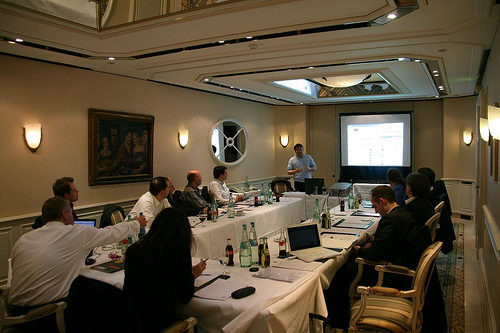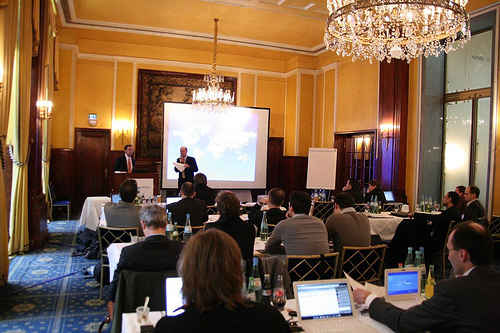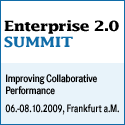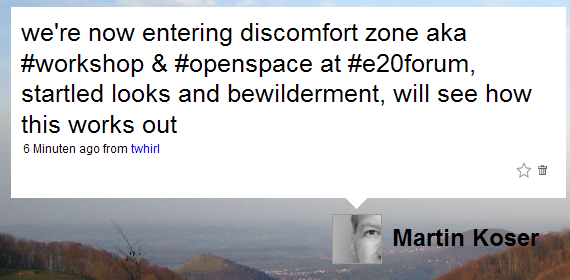Now, just now I was writing about my session proposal and my expectations for the upcoming Lotus JamCamp – especially in terms of the benefits of open communication and direct feedback that a BarCamp setting provides – and I’ve got fitting news on top:
 One is the very ambitious Enterprise 2.0 Forum at Cologne this week (which I can’t visit as it’s colliding with re:publica and the intertwined Lotus JamCamp events where I’m an active stakeholder) – but anyway I am going to listen from afar what gets tweeted and blogged. I hope that Joachim Niemeier, who is moderating the event will also post a summary come time, and make up for me missing Euan keynoting (“How-to manage the Enterprise 2.0 (r)evolution?”) and the rest of the event, including the workshops tomorrow.
One is the very ambitious Enterprise 2.0 Forum at Cologne this week (which I can’t visit as it’s colliding with re:publica and the intertwined Lotus JamCamp events where I’m an active stakeholder) – but anyway I am going to listen from afar what gets tweeted and blogged. I hope that Joachim Niemeier, who is moderating the event will also post a summary come time, and make up for me missing Euan keynoting (“How-to manage the Enterprise 2.0 (r)evolution?”) and the rest of the event, including the workshops tomorrow.
Then – and for crying out loud I am going to miss that one too – there’s the third International Forum on Enterprise 2.0 at Milano June 9 & 10.

In the past two years I attended them, ie. went to Varese and then, last year to Milano, but it’s so close to my (pre-scheduled) flight’s departure for Boston’s e2conf that I can’t combine them two. And one needs to find some time for actual customers in between all this conferencing …
So I am looking forward to meeting up with Emanuele, Sameer and Hutch over some Irish beers instead of Italian wine, weird bartering it is. But again joking aside, the agenda is looking nice, combining three topical tracks and an OpenSpace BarCamp-alike venue and room for discussion. And plenty of topics are on the slate, from “internal collaboration, customer engagement and open innovation” to:
– Setting up the strategy and building the business case
– New organization schemes and leadership models
– Nurturing adoption and cultural change
– Business drivers, metrics and return of the investment
– Community management and customer engagement frameworks
– How to socialize business processes: BPM 2.0, CRM 2.0, PLM 2.0
– Best practices and lessons learned through case studies
– From marketing to social CRM
– Social Media Marketing and PR 2.0
– Intranet 2.0
– Idea management and prediction markets
– Social softwares and collaborative platforms
 Lee Bryant invited me to the
Lee Bryant invited me to the 



